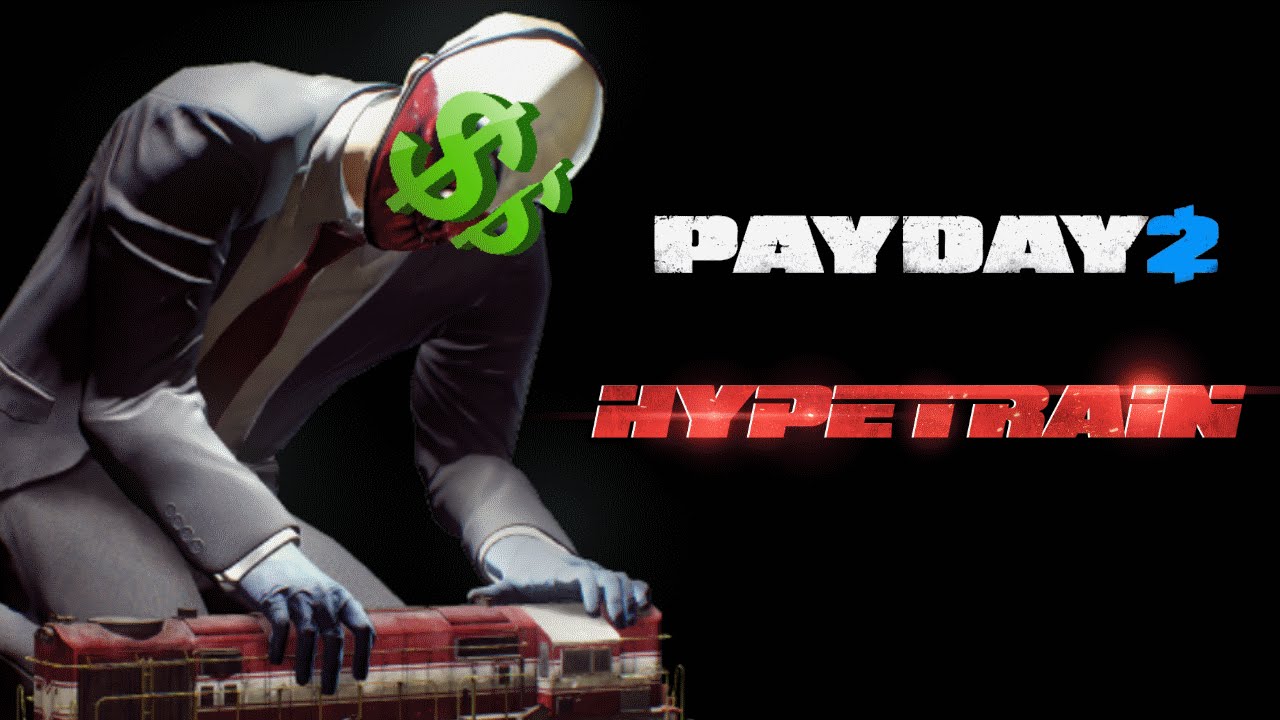Last time we looked at some of the moments over the past two years with PAYDAY 2 that lead its developer, Overkill, to decide on implementing microtransactions, from their own point of view. This time, we turn a bit more to the community perspective and dive a little deeper into those same events, starting with where we left off: the Hype Train event.
A quick disclaimer before we get too far into this. Throughout, I make references to the “PAYDAY 2 community,” or simply “the community,” which is a shorter way of saying “some (vocal) portion of the PAYDAY 2 community.” It is unclear what percentage those individuals represent when compared against the rest of the community that has either continued to support Overkill, or just remained silent on the matter. The community perspective shared in this piece, then, is a reflection of the thoughts/opinions/information shared by those who were most dissatisfied with recent events.
As previously discussed, during the month-long Hype Train event members of the community could purchase DLC or the game itself in order to contribute “hype fuel” to the train; the more fuel the train received, the more rewards that would be released, for free, the following month during the Spring Break event. The final reward that could be unlocked was “PAYDAYCON,” a special convention for fans to be held in Los Angeles (later moved to Seattle to coincide with PAX) that would include a tournament with a $250,000 prize pool (the tournament did not happen). From Overkill’s perspective, it was a “win-win situation.” Almir Listo, producer at Overkill, explained that, “we figured that rather than asking everyone to pay $5 or whatever, how about we say 'not everyone has to pay if they don't want to, or can't, but those of you who do, fuel the Hype Train and [in doing so] fuel [our ability to create] more free stuff for everyone.' So from our perspective at that point in time, it was a great idea; because the money of a few could create free content for the many.”
The optional participation and benefits to the entire community were presented as such on the webpage for the event, but it also stated that the event was “a way for us to salute our loyal community who have been supporting us for such a long time.” There were those in the community who questioned how a developer obliquely asking its fans to provide them money for content was a “salute.” Those questions intensified once the community crunched the numbers and figured that Overkill likely received somewhere between $2.5 and $3 million through the Hype Train event.

Image taken from OSO YouTube video
To be clear, no financial information was shared with me when I spoke with Almir and the numbers presented here are based on speculation from the community. It should also be noted that many of those calculations don't take into account any money that would be set aside for Valve (as part of the agreement for using Steam to sell the game) or for 505 Games’ (the publisher of PAYDAY 2). The actual amount isn't so important here, though, as what does matter is that it lead some within the PAYDAY 2 community with one question: why does Overkill need all of this money to produce the stated event rewards?
Communication was crucial at this point. Overkill needed to be open with the community about how the financial effort they put forth over the past month would lead to content and rewards. This wasn’t about the developer opening their books for all to see so much as letting their supporters know how their contributions made a difference. From an outside perspective, games development can often be something of a black hole where money goes in and something comes out. The actual value/worth of the content that is produced, then, becomes the subject of intense scrutiny. “Is this really worth X amount of money?” When a developer is able to share some details about what into the production of that content, e.g., “we had to develop new art assets and then do testing and XYZ,” then it clarifies the process a little more and puts to rest some of the possibility for wild speculation.
Unfortunately for everyone, Overkill wasn’t communicating with their community as well as they had been. “This is something we've been so good in the past doing, you know, communicating with the community in the sense of asking 'what do you want to see, what do you want us to do?” Almir told me. “That's something I touched on in our latest announcement where we also apologized for all the distress we caused. We feel that there's a disconnect; the last few months we felt that there's been a disconnect with the community.”
